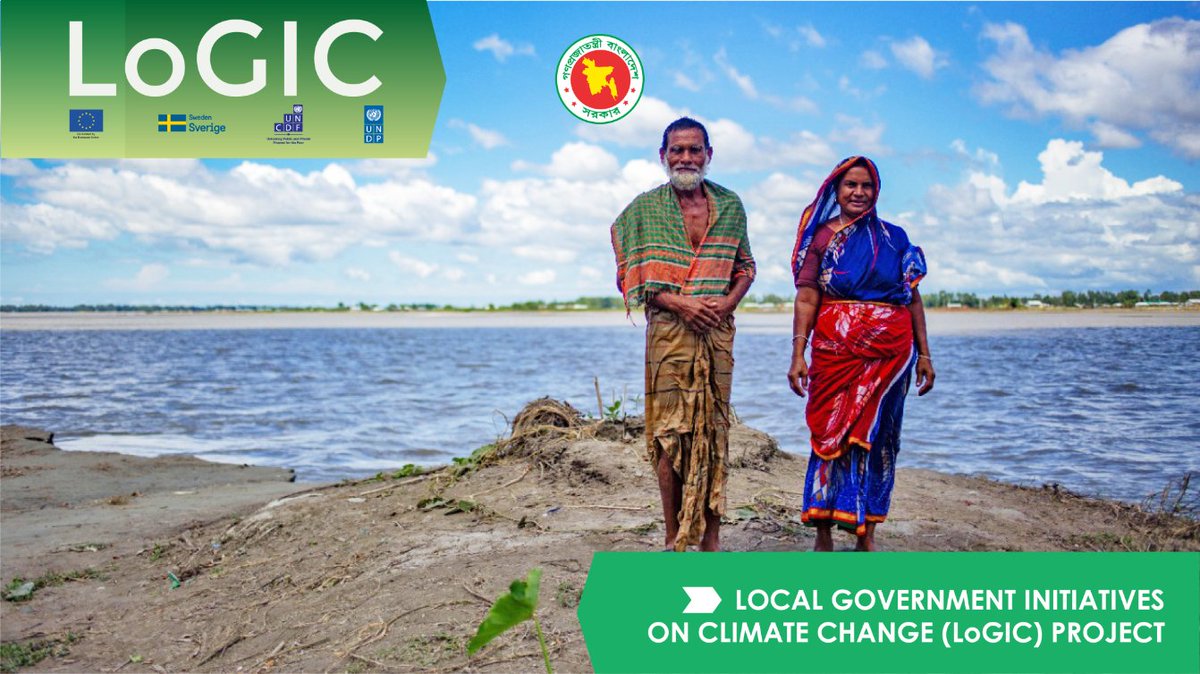Final Evaluation of Local Climate Adaptive Living Facility (LoCAL) in 14 countries across Asia, Africa and Asia-Pacific; Deep dives in Bhutan, Tanzania, Niger and Tuvalu
United Nations Capital Development Fund (UNCDF)UNCDF designed Local Climate Adaptive Living Facility (LoCAL) in 2011 to build climate-resilient communities and promote local economies. This included establishing a standard, internationally recognised country-based mechanism to channelise climate finance for local government authorities in developing countries, particularly the Least Developed Countries.
Long Term Agreement (LTA) to implement evaluations under UNCDF’s Evaluation Plan
UNCDFThe United Nations Capital Development Fund (UNCDF) is the UN’s capital investment agency for the world’s 47 Least Developed Countries (LDCs). UNCDF uses its capital mandate to help LDCs pursue inclusive growth through the deployment of Official Development Assistance (ODA) to unlock public and private finance from the public and private sectors.
Evaluation of BRIDGE IPC training Programme, India
UNICEFUNICEF through its project “Boosting Routine Immunisation Demand Generation (BRIDGE)” have been trying to build the capacities of the Frontline Line Workers who are a bridge between health delivery system and the community. For this, they have developed the Interpersonal Communication (IPC) module for the frontline workers (FLWs) to leverage SBCC for routine immunisation. The focus of the programme was to improve the interpersonal communication skills of FLWs thereby leading to improvement in the generation of demand.
Impact Evaluation of the “Economic Empowerment Women Entrepreneurs” in India
GIZThe project is aimed at improving the framework conditions for women entrepreneurs to encourage more women to turn into entrepreneurs and thereby increase the share of women entrepreneurs in the country.
EATT: Monitoring and evaluation of Ethiopia’s Tax Transformation Programme
DFIDUnder Ethiopia Tax Systems Transformation Programme (TSTP), DFID and Government of Ethiopia (GoE) established a Tax Transformation Office (TTO) in the Ethiopian Customs and Revenue Authority (ERCA). This unit is designed to drive the institutional transformation of ERCA and implement tax policy reforms aimed at responsible and equitable increase of tax revenues in Ethiopia. The underlying objective of the programme is transforming Ethiopia’s tax system so that the GoE can fund more services for its population from its own revenues and become less dependent on aid, thereby harnessing the potential of the country’s booming economic growth.
Mid-Term Portfolio Evaluation of GAIN’s Government of Netherland’s funded Improving Access to Safe, Healthy and Affordable Nutrition and Promoting its Consumption among the Most Vulnerable Populations, Multi-country global Evaluation
GAINGAIN’s Dutch funded portfolio consists of 9 work streams in 11 countries which aim to improve diets for vulnerable populations, enhance private sector actions to improve access to nutritious foods and tackle malnutrition and to improve the overall enabling environment for public-private partnerships.
Real Time Evaluation of UNICEF’s Response to the COVID-19 Crisis in India
UNICEFUNICEF India has commissioned a Real Time Evaluation (RTE) to assess and improve the relevance, coverage, effectiveness, and efficiency of its COVID-19 crisis response in 5 Indian states, by providing immediate feedback and recommendations for improvement across UNIECF’s six pillars in India. The RTE was guided by the OECD - DAC evaluation criteria of relevance, efficiency, and effectiveness while considering equity and gender as a cross-cutting theme at every step of the evaluation.
Implementation Research for Improving the Delivery and Scale-Up of Biofortified Foods in India
Global Alliance for Improved Nutrition (GAIN) & Harvest PlusThe Commercialisation of Biofortified Crops Programme under the GAIN-Harvest Plus partnership is working with commercial value chain actors - seed producers, farmers, aggregators, and processors – to catalyse commercial markets for biofortified seeds, grains and food products (for Iron Pearl Millet and Zinc Wheat) in six states of India to address malnutrition.
EVIVE-Impact Evaluation, Pan India
Samhita Foundation & USAIDREVIVE aims to address the livelihood crisis perpetrated by Covid-19. It aims to provide a no-interest returnable grant (RG) to the Bottom of the pyramid population, focusing on women whose lives and livelihood was affected due to pandemics – with loss of job and income. The loan’s primary recipients will be women entrepreneurs, self-employed persons, farmers, and kiosk owners.
Evaluation of the National Early Childhood Care and Development (ECCD) Programme
UNDP PhilippinesEvaluation study of the National ECCD aimed to undertake a formative evaluation of the National ECCD System to provide insight into how its design, implementation, monitoring and evaluation may be further improved.
Review and Analysis of Key Performance Indicators (KPI) in Water Sector for fourth edition of the Composite Water Management Index (CWMI 3.b)
NITI AayogNITI Aayog hired a third party to conduct an independent validation of states submission on select indicators identified in the Water Sector. The validation process led to calculation of individual score of the states according to predefined methodology, based on which rankings were assigned to the states. The Index provided insights into selected states and UT’s strengths, weaknesses, and areas requiring more focused action and resources.
Outcome Evaluation for a women empowerment and smallholder livestock improvement programme in Bihar
Aga Khan FoundationOutcome Evaluation study is intended to strengthen evidence-based decision-making in project implementation (in both direct implementation and outreach areas) contributing to strengthening the quality of implementation and enabling the wider dissemination of project learning for policy dialogue.















